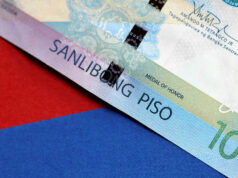No national trait is more endearing than modesty. It routinely attributes even clearly personal triumphs to sheer luck, divine intervention, and the support of a myriad of personalities who jointly achieved the goal. This form of humility is probably aimed at warding off the envy of losers or the possibility of attracting misfortune by being too smug. Accomplishments are shrugged off too quickly — Oh, it was nothing.
Self-deprecation in the form of belittling oneself and seeming to take accomplishments lightly, no matter how awesome, is a charming attempt at lowering one’s profile. Still, this personal modesty can take the extreme form of showing little regard for the achievements and even greatness of one’s country and heritage too.
It seems almost too predictable to consider other nations, even emerging economies like Vietnam, to be doing better than us in every conceivable aspect like entrepreneurial spirit or economic prospects. This all too common inclination towards self-abasement — maybe aggravated by returning overseas workers who have been exposed to other systems when coming home to their much humbler circumstances — unintentionally puts the country in a bad light. (Even our fabulous beach is now referred to as a cesspool.)
The aw-shucks modesty of a champion is on display in TV interviews right after a stunning victory. Our iconic boxer used to credit his serial triumphs to the prayers of the nation and the Lord being in his corner. There is little opportunity these days for him to exhibit this same humility. The persistent effort to book another lucrative fight met with offers of undercard status has flipped a different switch — that’s no way to treat a seven-time world champion.
In a recent TV interview, one perceptive stand-up comedian concluded that the Filipino brand of humor is insult-based (pang-lalait) and abusive. This verbal bullying in live comedy shows pick on “victims” who may have been planted there in the front seats to be laughed at for their corpulence, old age (Were you a waiter at the last supper?), and perhaps skin color (Smile so we can see you). The nervous laughter of the audience is explained as “relief” — I’m glad he didn’t pick on me.
The main purveyor of insult humor is a star on noontime TV and sashays into his lines directed at nervous contestants. (You have to change your ambitions.) In one stand-up comedy show, he crossed the line by referring to a revered TV news anchor as a roasted pig missing an apple. The negative reaction on this gag, especially as it was visited on a personality known for her professionalism and mild manners has probably pushed back the mainstream acceptability of insult humor. Truly, such verbal abuse anyway is seldom funny.
Still, when insult humor is directed inward, it can be charming. Is it only the obviously competent and unquestionably accomplished that can comfortably engage in self-deprecatory humor?
The insecure and unqualified may not feel confident in making fun of himself. For self deprecation to work, a social compact is implicitly entered into between the speaker and his audience. A speaker poking fun at himself puts people at ease who would otherwise be intimidated by his power, intellect, or wealth — I used to take the public bus to school as a student. That’s how I learned how to sway without music.
The flip side of self-deprecation is false humility. Anyone prefacing what he is about to say with the phrase “modesty aside” is about to launch into self aggrandizing statements, trumpeting achievements by packaging them as modest — my winning this prestigious award against other contestants from 40 other countries is testament to the ingenuity of the Filipino (ahem, you’re looking at him). In our culture, nothing seems more off-putting than a windbag who puts modesty aside on a regular basis.
Self-deprecation may have less to do with humility, and more with managing expectations. There is an invitation not to be taken seriously, even to be underrated. An achievement is scaled down to avoid resentment. The more the truly successful downplay their achievements, the more admired and esteemed they seem to be. (He’s so approachable for a selfie.)
Maybe, the accolades are left for their drumbeaters to handle. Still, the modesty of truly powerful people can be a winning trait… even for those with much to be modest about.
A. R. Samson is chair and CEO of Touch DDB.



